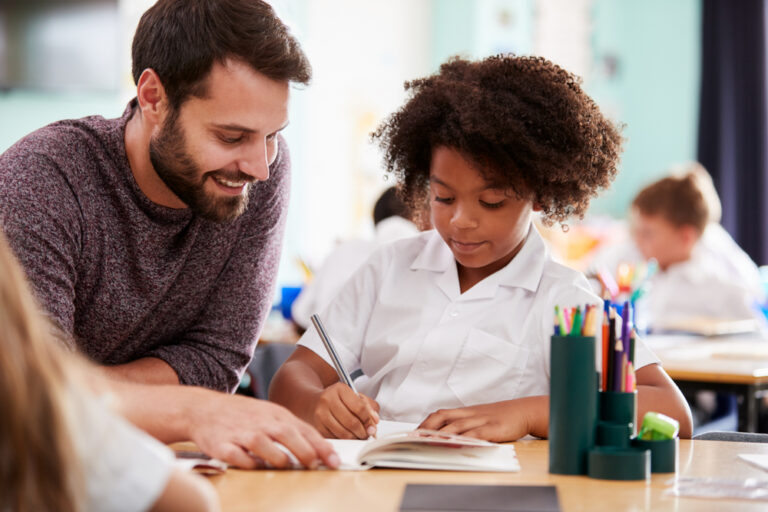By Melissa Fox
If the events of the last two school years have taught parents anything, it’s the importance of communication. The best way to do this is by creating and maintaining an open dialogue with your kids and their school. Who better to instruct us on how to do this than teachers?
Ms Simmons has been working in the primary education system for 13 years. She works hard to establish strong teacher-student bonds and underscores the importance of involving parents in the process. “It’s important that we work as a team because our common denominator is their child.”
She suggests allowing for lots of conversations, where kids share their interests and passions. This can go a long way for parents and teachers as well: “It helps me get to know how to encourage them.”
Also key is developing a good routine which can be followed when school restarts.
“Children need structure, and it’s important to get them into a routine a few weeks prior to school starting,” she says. “I always recommend, when possible, the family sit down to dinner together without distraction. Once dinner is done, children can get themselves ready for bed and the day ahead.”
Not only does this kind of routine help set children up for a more regimented school day, but it can also help to develop oft-forgotten social skills like how to carry on a conversation, sit quietly, and pay attention.
Gearing up for another year of shaping young minds, Mr Nannini considers technology a driving factor in the way parents, students, and educators build trust today. Like many educators, he relies predominantly on email to keep parents up to date with their student’s progress but will routinely schedule events during the year to bring everyone together.
“I like to keep parents in the loop about what we are doing [in school] and how we do it,” he says, an important step to helping parents engage with the learning process at home. This collective show of support can work wonders for a child’s self-confidence, which in turn can improve academic performance and overall development.
Raising kids today is far different from generations past. Mr Nannini encourages a more hands-on approach: “Be supportive, listen, motivate, understand. Make them laugh, make them wonder, show them that there is indeed a light at the end of the tunnel.”
It goes without saying that to do this, you must be prepared. Start by working with your kids to get back into the routine of thinking critically. “A simple way to do this is to watch the international news as a family and have a debate or discussion. Be the devil’s advocate when needed to push your child’s level of questioning and evidence gathering.”
Open, honest, regular communication between parents, students, and teachers is key to long-lasting academic success. Thanks to email and apps, parents don’t have to wait for school meetings or report cards to become involved in their children’s progress.
Constructive conversations – talking and listening – will foster the trust needed to ensure your student sees their true potential because the best way to support our students comes with the realization that it truly takes a village to raise a child.

